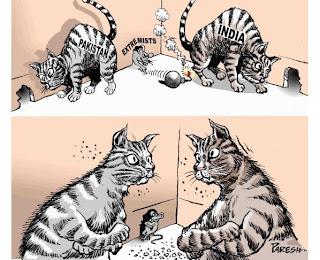To illustrate my argument, I chose the Indian and Pakistan diplomatic negotiations in January 2009 about Kashmir. The context of this is that the diplomatic discussion after the November 2008 attack in Mumbai as freeze between these two countries. In her speech at the International Institute for Strategic Studies in London in February 2010, the Indian foreign Secretary, Nirupama Rao said that the Kashmir discussion is a topic that ‘must be discussed bilaterally’. http://www.iiss.org/whats-new/iiss-in-the-press/february-2010/india-and-pakistan-finding-the-right-forum-for-dialogue/

Here is a good example of the fact that the ‘old’ diplomacy system prevails in a time when we talk about ‘new’ diplomacy, openness and non-state actors. Indeed, there was no Kashmir representative in the discussion between India and Pakistan. Furthermore, on top of that discussion agenda appeared new issues such as the rivalry over Afghanistan and sharing Himalaya river waters (IISS). Thus, the Indian foreign Secretary talks about better communication and responsive dialogue between India and Pakistan, but what did they actually talked about? What were the decisions that the discussion led to? Who was present? Most probably just close related government’s representatives. She just said that the bilateral dialogue was actually better. But we already knew that there was a bilateral discussion in private. But maybe, just the fact that she actually gave a public talk made the discussion look more ‘open’. In my point of view, it is just manipulation of the medias to look like it was. But the public did not know anything new after her speech from what they knew before it in that specific topic.
So in my point of view, the openness of ‘new’ diplomacy is not really relevant and is extremely questionable.

No comments:
Post a Comment